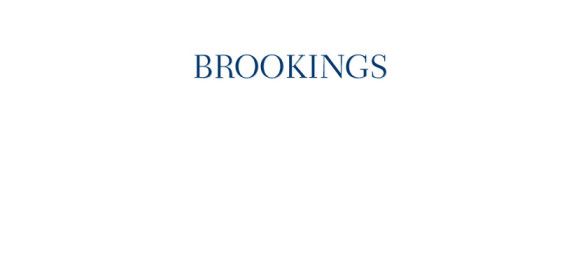Section: Brookings (USA)
The unending saga of Ukrainian reforms
There could hardly be a better or more depressing symbol of Ukraine’s parlous state than discussions at the Yalta European Strategy (YES) conference, held every year in September. The gathering, launched in Yalta in 2004, was intended to highlight Ukraine’s growing sophistication and European vocation in one of the country’s...
Imperial Gamble : Putin, Ukraine, and the New Cold War
Brookings Institution Press 2015 230pp. Marvin Kalb, a former journalist and Harvard professor, traces how the Crimea of Catherine the Great became a global tinder box. The world was stunned when Vladimir Putin invaded and seized Crimea in March 2014. In the weeks that followed, pro-Russian rebels staged uprisings in southeastern Ukraine. The...
Empty words: Republican non-proposals for dealing with Putin
We knew well before the first Republican presidential debate on August 6 that most of the GOP candidates don’t like Vladimir Putin or President Obama’s reset policy—instead, they advocate getting tough with Moscow. Perhaps the second debate on September 16 will give them a chance to describe more fully how they would deal with the...
How Russia and America make the same mistakes in Syria
Russia’s apparent escalation in Syria is less dramatic than it seems, but it still represents another depressing development in the ongoing nightmare of the Syrian civil war. While it appears no Russian troops are engaged in fighting, the volume of military cargo delivered from Russia to Syria by sea and air has significantly increased in...
Putin’s deceptive pause: What are Russia’s next steps in Ukraine?
A deceptive late-summer pause has settled over the Ukraine crisis. At least, in the coverage of it. For many weeks now, the war in the Donbas has slipped off the front page. Although leaders such as Germany’s Chancellor Angela Merkel and Ukraine’s President Petro Poroshenko still search for an acceptable formula to end the war, it has...
Russia’s Arctic illusions
U.S. chairmanship in the Arctic Council will receive a needed boost from the upcoming conference in Anchorage, which President Barack Obama is due to address on August 31. His message is predictable: He’ll talk about climate change. Russia has received an invitation to the conference, but decided to send a fairly low-level delegation....
Understanding the limits of sanctions
Editor’s Note: This piece originally appeared on Lawfare. Since 2005, U.S. policymakers have increasingly turned to sophisticated types of economic sanctions as a foreign policy tool of first resort. From the development of banking sanctions limiting Iran’s ability to secure financing from Western capital markets to new sanctions...
Russia’s rising military: Should the U.S. send more nuclear weapons to Europe?
Russia’s actions in Ukraine, its military modernization program, and its more bellicose stance toward the West in general have raised concerns in NATO. The alliance needs to pay attention to territorial defense and its own military capabilities. But deploying more U.S. nuclear weapons in Europe is not a good response. Russia’s More...
The South Caucasus and the limits of Western power
If Russia is a “riddle wrapped in a mystery inside an enigma” as Churchill famously claimed, then the South Caucasus region is a conundrum cloaked in obscurity and tangled in Gordian knots. The three countries of the region—Armenia, Azerbaijan, and Georgia—have distinct ethnic, cultural, religious, linguistic, and geopolitical identities that...
Europe yesterday, Beijing today: Russia’s bad romance
Looking at the global chessboard, one can’t help but be puzzled. Only yesterday, Russia was dating Europe; today, the Kremlin is trying to persuade the world (and itself?) that it has fallen in love with Beijing. Witness Russia’s hosting last week of the dual summit of the BRICS and the Shanghai Cooperation Organization—a clear signal...



